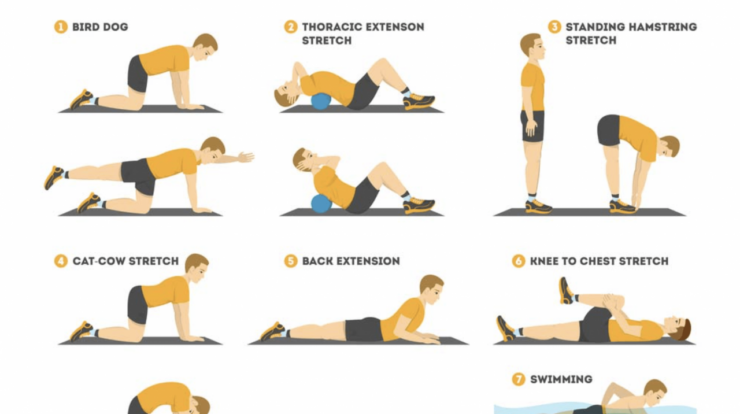
How to cure gum disease without a dentist – Gum disease is a common problem that can lead to serious health issues if left untreated. But what if you don’t have access to a dentist? How can you cure gum disease without professional help? This guide will provide you with everything you need to know about home remedies and prevention techniques for gum disease.
From natural remedies like oil pulling and salt water rinses to dietary modifications and proper oral hygiene techniques, we’ll cover all the bases. So if you’re looking for ways to improve your gum health without a dentist, read on!
Home Remedies for Gum Disease
Gum disease is a common problem that can cause pain, bleeding, and swelling of the gums. In severe cases, gum disease can even lead to tooth loss. While there are a number of effective treatments for gum disease available, some people prefer to try home remedies first.
There are a number of different home remedies that can be used to treat gum disease. Some of the most popular remedies include:
- Salt water rinse:Gargling with salt water can help to reduce inflammation and pain in the gums. To make a salt water rinse, dissolve 1/2 teaspoon of salt in 8 ounces of warm water.
- Baking soda rinse:Baking soda is a natural antiseptic that can help to kill bacteria in the mouth. To make a baking soda rinse, dissolve 1/2 teaspoon of baking soda in 8 ounces of warm water.
- Hydrogen peroxide rinse:Hydrogen peroxide is a powerful antiseptic that can help to kill bacteria and reduce inflammation. To make a hydrogen peroxide rinse, mix 1 part hydrogen peroxide with 3 parts water.
- Tea tree oil rinse:Tea tree oil is a natural antiseptic and antifungal that can help to kill bacteria and reduce inflammation. To make a tea tree oil rinse, add 2-3 drops of tea tree oil to 8 ounces of warm water.
- Aloe vera gel:Aloe vera gel is a natural anti-inflammatory that can help to reduce pain and swelling in the gums. To use aloe vera gel, apply it directly to the gums.
It is important to note that home remedies should not be used as a substitute for professional dental care. If you have gum disease, it is important to see a dentist to get the proper treatment.
Limitations and potential side effects of home remedies
Gum disease can be a real pain, but there are ways to treat it without going to the dentist. One of the best ways to cure gum disease without a dentist is to practice good oral hygiene. This means brushing your teeth twice a day, flossing daily, and using mouthwash.
You can also try using a homemade mouthwash made with salt water or tea tree oil. If your gum disease is severe, you may need to see a dentist for treatment.
While home remedies can be effective in treating gum disease, they also have some limitations and potential side effects. Some of the limitations of home remedies include:
- They may not be effective in treating all cases of gum disease.
- They may only provide temporary relief from symptoms.
- They may cause side effects, such as irritation or allergic reactions.
It is important to talk to your doctor before using any home remedies for gum disease. This is especially important if you have any other medical conditions or are taking any medications.
If you’re struggling with gum disease, you may be wondering if there are any ways to cure it without going to the dentist. The good news is that there are several things you can do at home to help improve your gum health.
Here are a few tips to get you started on the road to recovery.
Oral Hygiene Techniques for Gum Disease Prevention

Maintaining proper oral hygiene is essential for preventing gum disease. Effective brushing and flossing techniques, combined with the use of mouthwashes and other oral hygiene products, can help remove plaque and bacteria, reducing the risk of gum inflammation and infection.
Brushing Techniques
Brush your teeth twice a day with a soft-bristled toothbrush and fluoride toothpaste. Hold the toothbrush at a 45-degree angle to the gum line and use gentle circular motions to remove plaque and food particles. Focus on the areas where plaque tends to accumulate, such as the back molars and along the gum line.
Flossing Techniques
Floss your teeth once a day to remove plaque and food particles from between the teeth where your toothbrush can’t reach. Gently guide the floss between your teeth and move it up and down along the sides of each tooth, taking care not to cut your gums.
Mouthwashes and Other Oral Hygiene Products
Mouthwashes containing antibacterial ingredients can help kill bacteria and reduce plaque. Fluoride mouthwashes can strengthen tooth enamel and prevent cavities. Tongue scrapers can remove bacteria from the tongue, reducing bad breath and contributing to overall oral hygiene.
There are a few things you can do to cure gum disease without a dentist. First, try using a saltwater rinse. Mix one teaspoon of salt in eight ounces of warm water and rinse your mouth for 30 seconds. Repeat this several times a day.
You can also try using a hydrogen peroxide rinse. Mix one part hydrogen peroxide with three parts water and rinse your mouth for 30 seconds. Repeat this several times a day. How to cure gum disease without a dentist is a great way to get more information on this topic.
You can also try using a mouthwash that contains chlorhexidine. Chlorhexidine is an antibacterial agent that can help to kill the bacteria that cause gum disease. Rinse your mouth with the mouthwash for 30 seconds twice a day.
Dietary Modifications for Gum Disease Management
Dietary modifications play a significant role in managing gum disease by influencing the oral microbiome and overall health. Certain foods and nutrients can contribute to or prevent gum disease, while supplements can provide additional support for gum health.
To maintain healthy gums, it is important to consume a balanced diet rich in fruits, vegetables, and whole grains. These foods are good sources of vitamins, minerals, and antioxidants that support gum health. On the other hand, sugary and processed foods, as well as those high in saturated fats, can promote gum inflammation and disease.
Foods to Include, How to cure gum disease without a dentist
- Fruits: Apples, oranges, berries, and bananas are rich in vitamin C, an essential nutrient for gum health.
- Vegetables: Leafy greens like spinach and kale, as well as carrots and celery, provide vitamins and minerals that support gum tissue.
- Whole grains: Brown rice, quinoa, and oats are good sources of fiber, which helps remove plaque and bacteria from the teeth.
- Dairy products: Milk, cheese, and yogurt contain calcium, which is essential for strong bones and teeth.
- Lean protein: Fish, poultry, and beans provide amino acids that are necessary for tissue repair and regeneration.
Foods to Avoid
- Sugary foods: Candies, sodas, and sugary snacks feed bacteria in the mouth, leading to plaque formation and gum disease.
- Processed foods: Often high in unhealthy fats, sugar, and salt, which can contribute to inflammation and gum disease.
- Acidic foods: Citrus fruits, tomatoes, and vinegar can erode tooth enamel and weaken gums.
- Sticky foods: Foods like caramel and dried fruits can stick to the teeth, providing a breeding ground for bacteria.
Role of Supplements
While a balanced diet is essential, supplements can provide additional support for gum health. Some supplements that have been shown to benefit gum health include:
- Vitamin C: Essential for collagen production, which is a protein that supports gum tissue.
- Vitamin D: Supports immune function and reduces inflammation.
- Omega-3 fatty acids: Found in fish oil, they have anti-inflammatory properties that can benefit gum health.
- Probiotics: Beneficial bacteria that can help maintain a healthy balance in the oral microbiome.
It is important to note that supplements should not replace a healthy diet and should be used under the guidance of a healthcare professional.
Alternative Therapies for Gum Disease

Alternative therapies for gum disease offer natural remedies to alleviate symptoms and improve oral health. These therapies are often used in conjunction with traditional dental care, providing a holistic approach to gum disease management.
Oil Pulling
- Swish a tablespoon of coconut oil or sesame oil in your mouth for 15-20 minutes, swishing vigorously to draw out toxins and bacteria.
- Spit out the oil and rinse your mouth thoroughly with warm water.
Salt Water Rinses
- Dissolve half a teaspoon of salt in a cup of warm water.
- Swish the solution around your mouth for 30 seconds, then spit it out.
- Repeat several times a day to reduce inflammation and kill bacteria.
Herbal Treatments
- Tea Tree Oil:Mix a few drops of tea tree oil with a carrier oil (e.g., coconut oil) and apply it to the affected area. Tea tree oil has antibacterial and anti-inflammatory properties.
- Myrrh:Steep myrrh powder in hot water to create a mouthwash. Myrrh is known for its astringent and antimicrobial properties.
When to Seek Professional Help: How To Cure Gum Disease Without A Dentist
Gum disease is a serious condition that can lead to tooth loss and other health problems. It is important to seek professional dental care if you experience any of the following signs or symptoms:
- Swollen, red, or bleeding gums
- Receding gums
- Loose teeth
- Pain or discomfort when chewing
- Pus between your teeth and gums
- Bad breath that does not go away
- Changes in the way your teeth fit together when you bite
If you have any of these symptoms, it is important to see a dentist as soon as possible. Gum disease can be treated effectively if it is caught early.
Regular Dental Checkups and Cleanings
Regular dental checkups and cleanings are essential for gum disease prevention and management. During a checkup, your dentist will examine your teeth and gums for signs of gum disease. They will also clean your teeth to remove plaque and bacteria.
Regular cleanings can help to prevent gum disease from developing or worsening.It is important to see your dentist for regular checkups and cleanings even if you do not have any symptoms of gum disease. This will help to keep your teeth and gums healthy and prevent future problems.
Gum disease is a common problem that can lead to serious health issues if left untreated. While it’s best to see a dentist for treatment, there are some things you can do at home to help cure gum disease without a dentist.
How to cure gum disease without a dentist includes avoiding sugary foods and drinks, brushing and flossing regularly, and using a mouthwash that contains fluoride. These simple steps can help to reduce inflammation and bleeding, and can help to prevent gum disease from getting worse.
Ending Remarks

By following the tips and advice in this guide, you can take control of your gum health and prevent or even reverse gum disease without a dentist. Remember, prevention is always better than cure, so make sure to practice good oral hygiene habits and eat a healthy diet to keep your gums healthy and strong.
FAQ Explained
Can I cure gum disease completely with home remedies?
While home remedies can help improve gum health and reduce symptoms, they may not be enough to completely cure gum disease. If your gum disease is severe, you may need to see a dentist for professional treatment.
How often should I brush and floss my teeth to prevent gum disease?
You should brush your teeth at least twice a day and floss at least once a day to prevent gum disease. Brushing and flossing helps remove plaque and bacteria from your teeth and gums, which can help prevent gum inflammation and infection.
What foods should I avoid if I have gum disease?
You should avoid sugary foods and drinks, as well as sticky foods that can get stuck in your teeth and gums. You should also avoid foods that are high in acid, as acid can damage your teeth and gums.




